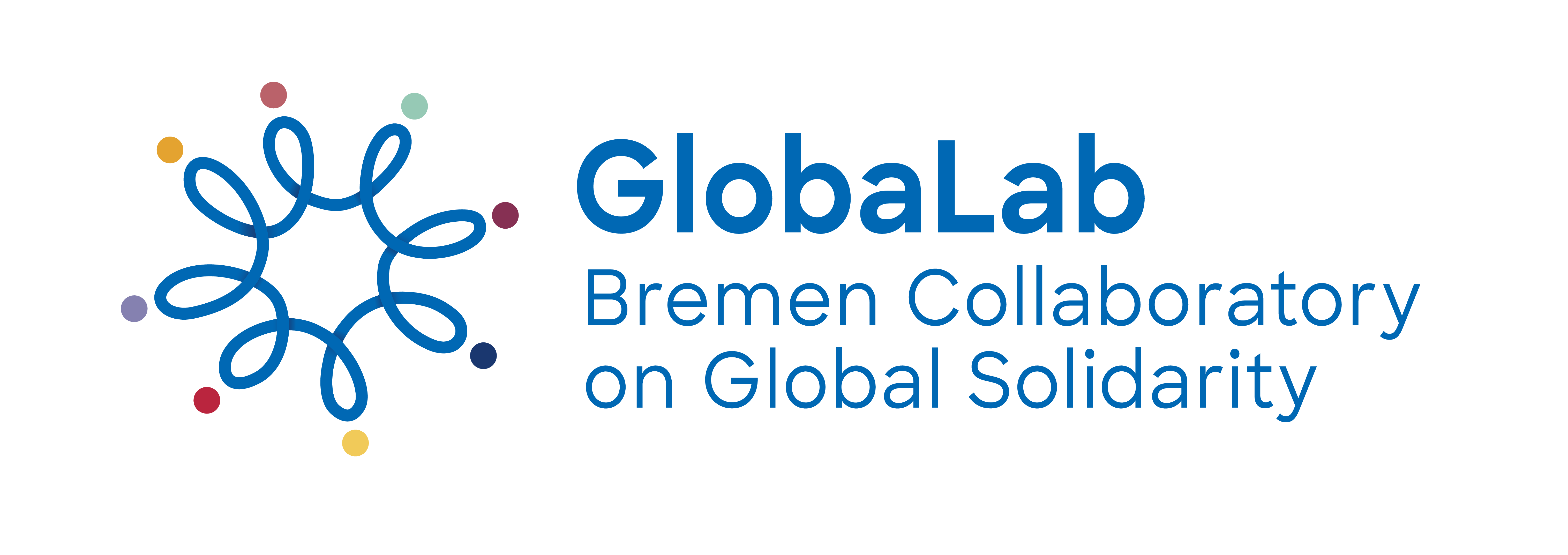Background
The path to GlobaLab
The University of Bremen has a long history of carrying out research into solidarity. Since its foundation, the university has assumed societal responsibility and worked on pressing issues of the time. Solidarity is not only a lived value, but also the subject of research. Institutionalized solidarity through social policy and the state welfare have been a focus of investigation for 50 years.
Rise as a Global Hub for Social Science Research
The result is an established track record in social science research, a long tradition in the study of social policy and social inequality, and extensive experience with large-scale collaborative research projects. Since 1988, the University of Bremen has attracted three successive DFG-funded Collaborative Research Centers (CRCs) in the social sciences alone – an achievement rarely matched by others.
This has shaped the structure of the university – for example, with the foundation of the “Zentrum für Sozialpolitik” (Center for Social Policy – ZeS) in 1989, its development into SOCIUM – Research Center on Inequality and Social Policy in 2015, and most recently, the establishment of the German Institute for Interdisciplinary Social Policy Research ("Deutsches Institut für Interdisziplinäre Sozialpolitikforschung”– DIFIS).
![[Translate to English:] Young researcher presents power point to peers before big screen [Translate to English:] Young researcher presents power point to peers before big screen](/fileadmin/_processed_/b/0/csm_Rise_as_a_Global_Hub_reduced_aadeca6ae7.jpg)
![[Translate to English:] Transparent plate with Socium Logo [Translate to English:] Transparent plate with Socium Logo](/fileadmin/_processed_/c/9/csm_socium_reduced_4a400944e5.jpg)
The current Collaborative Research Center 1342 on “Global Dynamics of Social Policy” expands the analytical perspective from the national government level to interdependencies between societies, as well as from the Global North to the Global South.
The extent to which social, cultural, and political differences and conflicts undermine social cohesion within and between different social groups – and how cohesion can be strengthened again – are investigated in the nationwide Research Institute for Social Cohesion (“Forschungsinstitut Gesellschaftlicher Zusammenhalt” – FGZ), of which Bremen is one of the coordinating locations. It investigates challenges to social integration, including a backlash against globalization, right-wing populism, rising inequality, and ethnic and cultural diversity.
Another important part of Bremen’s social science landscape is BIGSSS: the Bremen International Graduate School of Social Sciences. It attracted funding from the Excellence Initiative for the maximum period, namely from 2007 to 2019, and hosts PhD students from all over the world.
Under What Conditions Is Global Solidarity Possible in a Fragmented World?
The next step in the institutional development of the social sciences in Bremen is the establishment of a transnational collaboration format for a planned new research initiative on global solidarity: GlobaLab. This format brings together both of the research strands of the Collaborative Research Center on Global Social Policy and of the Research Institute for Social Cohesion – institutionalized welfare state solidarity as well as social cohesion – from a global perspective.
The central question is whether and under which circumstances global solidarity is possible in an increasingly fragmented world. The GlobaLab team aims to create a new research infrastructure with the "Bremen Collaboratory on Global Solidarity” to connect different substantive, analytical, and methodological perspectives and approaches from the entire world and bring together researchers from across the globe to cooperate as equals.
Climate Crisis, Violence, Inequality: No Solution Without Solidarity
GlobaLab is beginning by focusing on three worldwide challenges that cannot be solved without solidarity: the climate crisis, violent conflicts and wars, and global economic inequalities. In order to overcome these problems, very different countries and their inhabitants must work together. Solidarity here would necessitate reciprocal support and help amongst very unequal and heterogeneous countries – between strong and weak, rich and poor, those exposed (e.g. to climate change) and those who are less affected.
Note: This text is an edited version of the article “Solidarity: A Research Topic for 50 Years.” The article was published in up2date. in September 2023.
![[Translate to English:] Events posters of the Center for Marine Tropical Research [Translate to English:] Events posters of the Center for Marine Tropical Research](/fileadmin/_processed_/0/d/csm_No_Solution_Without_Solidarity_reduced_ee617ae57e.jpg)

